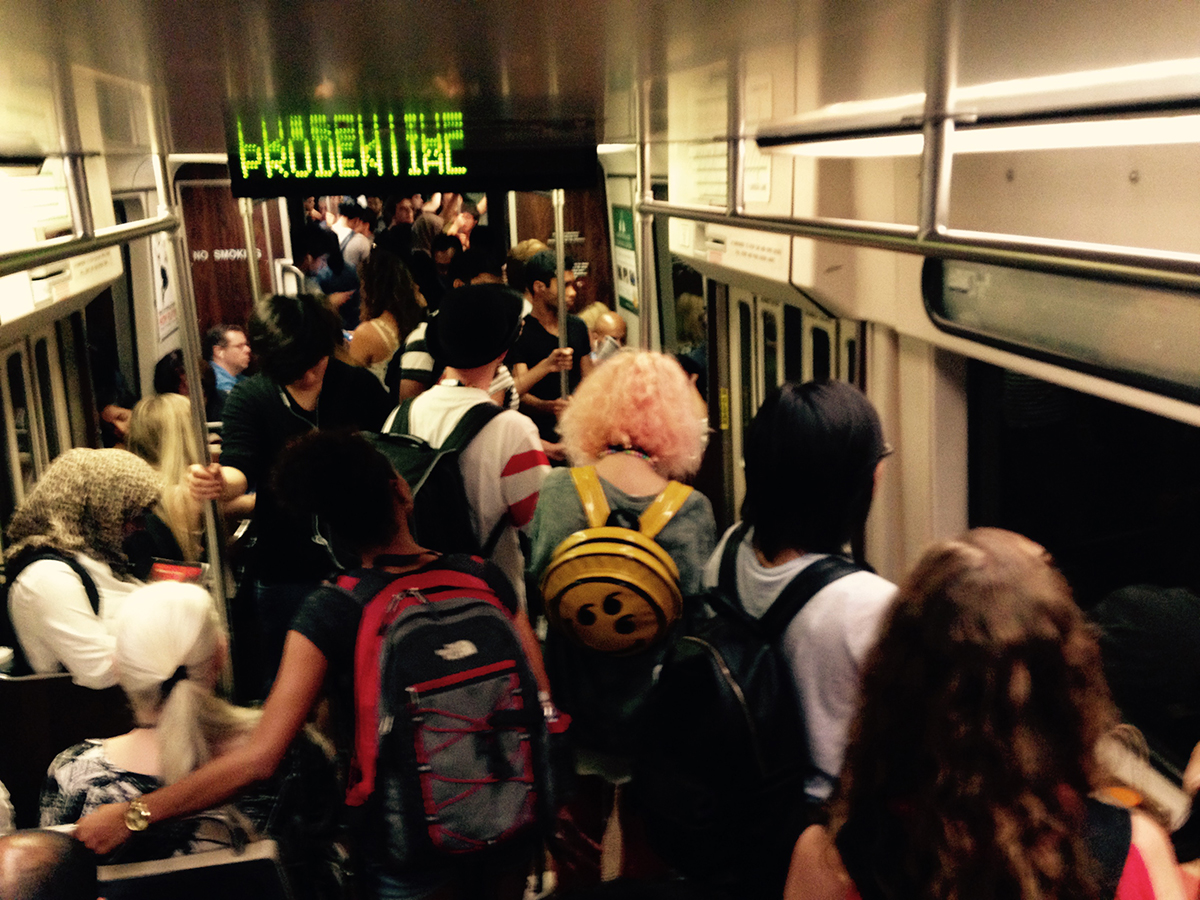Boston Millennials Care About Public Transit, Not Parking

Photo by Garrett Quinn
A new survey from the Urban Land Institute Boston/New England and MassINC Polling reveals what many have suspected for quite some time: Boston millennials are far more interested in using public transportation than driving a car.
After surveying 660 “young professionals” in the Boston area, 80 percent said access to public transportation is “very important” when choosing a community or neighborhood in which to live. Walkability and ease of commute scored high, with “Being able to walk to amenities” being very important to 75 percent of respondents. The availability of on-street parking was low on the list of things young professionals look for, as only 25 percent said it was a very important factor in how they chose a community to live in.
Not only do millennials strongly prefer neighborhoods with easy access to public transportation, but 76 percent of them are very likely or somewhat likely to live in a “transit oriented development.”
How likely would you be to live in a “transit oriented development,” meaning a dense development of housing and retail and dining with minimal parking, located at or near a public transit station?
Very likely 42%
Somewhat likely 32%
Not very likely 15%
Not at all likely 10%
Don’t know <1%
No response 0%
Access to public transportation was the most important factor for local young professionals when determining satisfaction with their place of employment. Seventy-eight percent of respondents said it was very important that their workplace be located near public transit. All other possible features, such as accessibility to restaurants and nightlife and in-office amenities such as gyms placed far behind in the survey.
Adding to the theory of millennials as the car-averse generation is their disinterest in free or discounted parking at their place of employment. Just 30 percent of respondents said it was very important to them that their employer offer free or discounted parking. Nearly as many, 27 percent, said it was not at all important. More than 55 percent of respondents said it was very important to them that their employer offer free or discounted transit passes. Of course, in the end, a flexible work schedule won out, as the most important thing to millennials in Boston, with 68 percent saying it was very important.
Bicyclists may still make up a small percentage of commuters, but they appear to make up an outsized portion of millennial workers in Boston. Fifty-nine percent of respondents said bike lanes and bike paths are very important or somewhat important when choosing a neighborhood to live in. An almost identical amount, 58 percent, said it was very important or somewhat important to them that their place of employment include amenities for bicyclists such as parking and showers.
All of this should give planners and some of the city’s outspoken car-loving residents pause the next time they demand developers include extra parking in new developments. This survey shows that the next wave of long-term residents in Boston is far less likely to drive than past city residents. Millennials do not want more free parking for cars they do not use, they want better public transportation and more community-oriented walkable places. Planners and developers can answer these demands by building spaces with people in mind, not cars.


